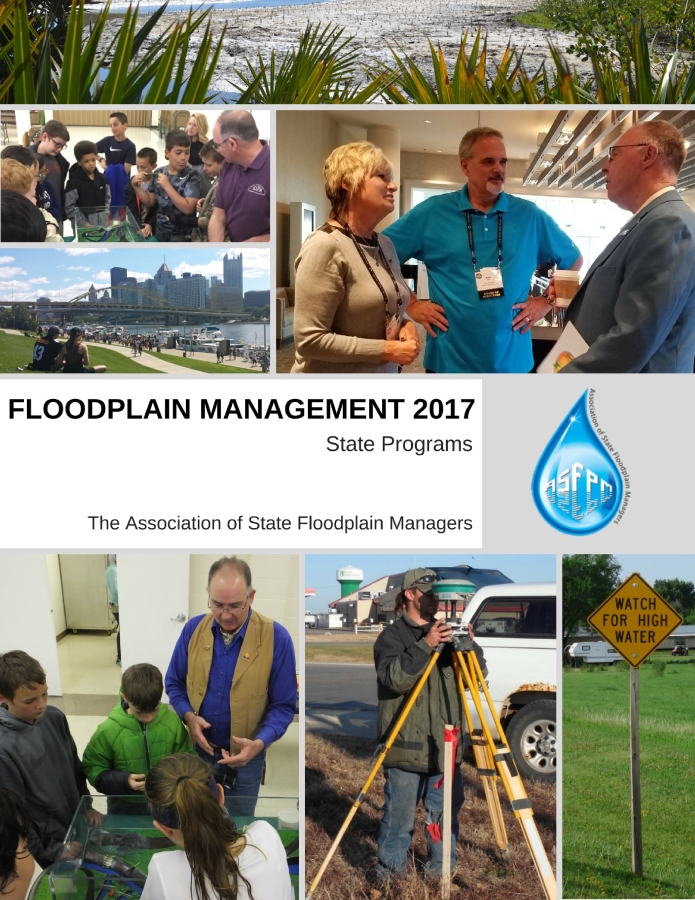Floodplain Management 2017
U.S. Floodplain Management Programs Survey
What is the Challenge? In the United States, flooding causes more losses than all other natural hazards combined. Given the damage and destruction generated by floods, unsustainable development, and population growth in hazardous regions, it is critical to periodically assess the status of state floodplain management programs.

Project Purpose: As part of its broader mission, the Association of State Floodplain Managers (ASFPM) periodically conducts a national assessment of state floodplain managers to learn more about the practices by which state and local governments manage floodplains. In 2017, ASFPM, with funding from the Federal Emergency Management Agency (FEMA), commenced a one-year project with the Natural Hazards Center to update its ongoing statewide survey of state floodplain managers.
The central objective of this project is to assess and make public, by way of a final report, the current status of state level floodplain management in the United States. The material contained in the report is meant to serve as a useful reference for policy advocates and those in the floodplain management community who are interested in understanding more about the identification and assessment of flood risks and the actions that are being taken to reduce those risks. The report assesses current funding and staffing trends and highlights best practices for sound floodplain management. By sharing this information, the intent is to provide a sound evidence base to help states build stronger floodplain management programs.
Outcomes: The final report, Floodplain Management 2017: State Programs, draws on data from a 2017 online survey sent to each state’s chief floodplain manager. In the end, 39 state floodplain managers answered more than 75 percent of the survey questions regarding their state level activities. The final report analyzes their responses according to the 10 principles of floodplain management, and, where applicable, compares findings from prior surveys that were conducted in 2003 and 2010.
The final report is available via ASFPM’s website.
Principal Investigator: Lori Peek, Natural Hazards Center and Department of Sociology, University of Colorado Boulder (Lori.Peek@colorado.edu)
Co-Principal Investigator and Project Lead: Liesel Ritchie
NHC Evaluation Research Project Team: Nnenia Campbell, Simone Domingue, Allison Madera, Catherine Talbot, and Jamie Vickery
NHC Research Support Team: Jolie Breeden, Jeffrey Gunderson, Nicole Mattson, and Zoe Welz
Funding Period: 2017
Funder: Association of State Floodplain Managers (with funding from the U.S. Federal Emergency Management Agency)
Program Officer: Chad Berginnis, Executive Director, Association of State Floodplain Managers (cberginnis@floods.org).